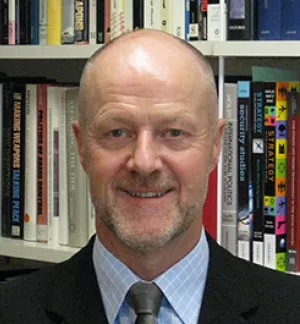EXECUTIVE SUMMARY
The International Atomic Energy Agency (IAEA) is the principal multilateral organization mandated by the international community to deal with nuclear issues. Established in 1957 and based in Vienna, it is essentially the nucleus around which all other parts of the global nuclear governance system revolve. This report, based on more than two years of research, interviews and consultations, concludes that the IAEA is:
- irreplaceable — like the United Nations itself, if it did not exist it would have to be invented;
- considering its capabilities, size and budget, a veritable bargain for international peace and security;
- effective and efficient — mostly;
- in need of both strengthening and reform — in certain key respects; and
- deserving of increased funding from member states and greater support from all stakeholders.
The IAEA has attributes and roles that cannot be matched by other organizations, groups of states or individual states, no matter how powerful or influential:
- It is a standing, multilateral organization with near universal membership and a science and technology orientation.
- Its nuclear safeguards system and associated verification activity is unparalleled.
- Its legitimacy and credibility allow it to oversee the formulation and dissemination of global nuclear nonproliferation, safety and security norms.
- Its role in fostering improved nuclear safety is well established and set to grow following the 2011 Fukushima disaster.
- Its work in the sensitive area of nuclear security is expanding and has great long-term potential, given the likely ephemeral nature of some other international arrangements.
- Its independence from the nuclear industry allows it to be a disinterested promoter of nuclear energy for states where it is appropriate, affordable and subject to the achievement of necessary milestones.
- Its assistance to developing countries in the peaceful uses of nuclear energy is an essential component of the nuclear non-proliferation bargain.
- Its impartiality permits it to be a facilitator and, in some cases, an active driver of treaty implementation across a wide spectrum of nuclear issues.
- It plays a unique role in fostering a truly international nuclear community.
The organization has, in many respects, evolved deftly over the past 55 years, shedding unrealizable visions, seizing new opportunities and handling with aplomb several international crises into which it has been drawn. Its Secretariat's technical competence and professionalism is highly regarded. The IAEA is widely viewed as one of the most effective and efficient in the UN family of organizations. Zero real budgetary growth has forced the Agency to stay relatively compact and to continuously seek efficiencies.
The research for this report confirms that, nonetheless, while the IAEA does not need a dramatic overhaul, it does need strengthening and reform — in particular respects. The Agency has not taken advantage of all the authorities and capacities that it has, and it sometimes has failed to seize opportunities staring it in the face. Like all venerable organizations it also suffers from a number of longstanding "legacy" issues that need fixing.
For the IAEA's key programs — safeguards, safety, security and promotion of the peaceful uses of nuclear energy — the following conclusions were reached:
- nuclear safeguards have been considerably strengthened in recent years, but current efforts to find new approaches and technologies and to change the old safeguards culture need to be intensified;
- the Agency's role in nuclear safety is being strengthened post-Fukushima, but remains hobbled by member states' reluctance to commit to mandatory measures and provide adequate resources;
- the Agency's emergency response capabilities produced mixed outcomes during the Fukushima disaster and need careful reconsideration and extra resources;
- the nuclear security tasks accorded to the Agency by member states, although growing, tend to be modest and supportive of external efforts: the Secretariat needs to rapidly equip itself for this new area of work and member states need to resource this activity properly; and
- Technical Cooperation (TC) has long been undermanaged, under-resourced and overexploited by some member states; current reform efforts need to be sustained and extended.
Among the Agency's governance, managerial and administrative challenges are the following:
- the governing bodies have seen a dissipation of the "spirit of Vienna," resulting from sharpened political divisions between developed and developing countries — especially over compliance, verification and peaceful uses;
- the Agency's leadership has struggled to find the correct balance between taking the initiative as an "independent" organization and necessary acquiescence to member states' disparate and evolving demands — especially over noncompliance controversies;
- the Secretariat has faced some long-standing management issues, including: insufficient strategic planning; a flat management structure; inconsistent practices and quality control across departments; programmatic stovepiping; a proliferation of programs, projects and mechanisms; and inadequate personnel policies;
- as a result of zero real budgetary growth, the Agency's infrastructure, technology (including IT) and human resources have deteriorated and the adoption of modern management tools has been delayed (although steps are underway to address all of these);
- intra-agency barriers to communication, transparency and information sharing have persisted; and
- the Agency has not communicated successfully with all of its stakeholders, including the media, the general public, the nuclear industry, the international development community and even member states.
In addition to meeting current expectations, the Agency also needs to prepare itself for future challenges:
- given that verification is never 100 percent effective and is likely to be needed in perpetuity, and that certain states may still risk non-compliance, safeguards and other verification capacities need constant enhancement, especially for detecting undeclared activities;
- the Agency's roles in nuclear safety and security by their very nature will likewise always be works-in-progress;
- new special verification mandates may arise or be resurrected at any time, as in the cases of Iran, North Korea and Syria;
- the Agency will likely be offered a role in verifying steps towards global nuclear disarmament, beginning with a Fissionable Material Cut-Off Treaty and assistance with bilateral US/Russia cuts;
- and despite Fukushima, runaway climate change may induce rapid demand for nuclear electricity and an upsurge in demand for the Agency's advisory and assistance services.
Reform and strengthening is already occurring in a number of areas of the IAEA's operations. Unless otherwise indicated, this report endorses such efforts and, in many instances, recommends that they be pursued with even greater vigour. This report also identifies a raft of other possibilities, both major and minor, for improving the Agency's performance in the short to medium term. In most cases, however, change will only be achievable if all the players work in tandem. Several proposals would require amending the Statute or involve decisions by the Board of Governors (BoG) and or the General Conference (GC). There should be no illusions about the difficulty of achieving agreement on these. Although there are some reforms that the Director General (DG) and Secretariat can themselves initiate, in almost every case they will require at least the tacit support of member states. In many instances a balance will need to be struck between cost, feasibility and member states' sensitivities about intrusiveness, confidentiality and sovereignty. The newly emerging powers, those with greater political and financial clout and growing nuclear energy industries, such as Brazil, China, India and South Korea, should play a greater role in governing, managing, supporting and funding the Agency than they have in the past. A full list of these recommended proposals can be found on page 126.
While this report puts no dollar or euro figure on what is required, it is an inescapable conclusion that the Agency is significantly underfunded, considering its responsibilities and the expectations increasingly being placed on it. Fukushima has reinforced this conclusion. In almost all cases, strengthening and reform will require additional resources, especially funding that can usually only be provided by the member states holding the purse strings. Hence, the importance of a grand budgetary bargain along the lines proposed in this report.
One of the Agency's major challenges is to meet the expectations of its member states and other nuclear stakeholders, which are often unrealistic. By being more transparent, open and honest about the functions it can and cannot fulfill, and being more diligent in providing convincing justification for funding increases in particular programs, the Agency may be able to attenuate this problem. This is especially important at a time of global financial stringencies. The Agency should also beware of raising unrealizable expectations itself: it should not describe itself as the hub, central point or focal point of a particular realm unless it is truly able to fulfill such functions.
Since it is states that established the IAEA, pay for it, provide its personnel and other resources, and grant it the necessary privileges and immunities, it is they that ultimately control its destiny. It is true that, like many organizations, the Agency has assumed an independent identity and presence in international affairs that no one member state can gainsay, and that in some circumstances it has some room for independent manoeuvre, especially by balancing the interests of various member states. It can in some respects strengthen and reform itself. But ultimately, it is constrained by the strong preferences of its membership as a whole or those of key, active member states. It is therefore to the member states that we must look to trigger and sustain lasting strengthening and reform — and thus unleash the nuclear watchdog.
OTHER RESOURCES
"Opportune Time to Improve IAEA's Role in Global Governance"—An Interview with Trevor Findlay: http://www.cigionline.org/articles/2012/06/unleashing-nuclear-watchdog-interview
Visit the Center for International Governance Innovation's interactive feature and timeline: http://interactive.cigionline.org/iaea/
Read the policy brief that summarizes the report's key findings and policy recommendations: http://belfercenter.ksg.harvard.edu/publication/22130/
Findlay, Trevor. “Unleashing the Nuclear Watchdog: Strengthening and Reform of the IAEA.” Centre for International Governance Innovation, June 2012
The full text of this publication is available via Centre for International Governance Innovation.





